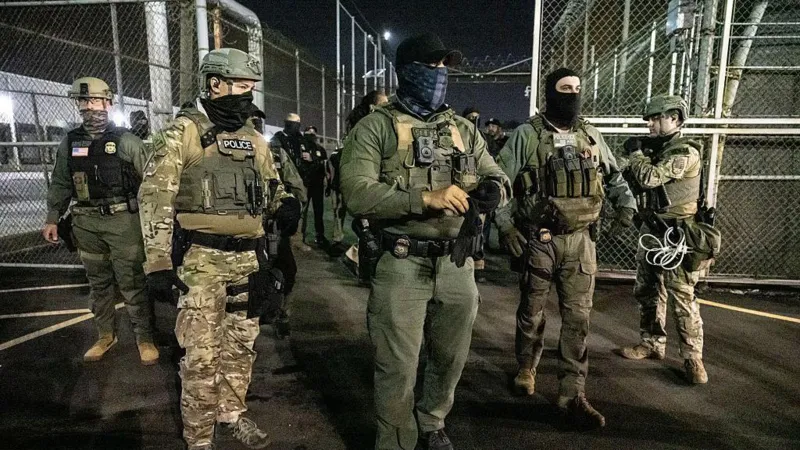US President Donald Trump has directed federal agencies to carry out what he called the “largest mass deportation programme in American history.” The controversial order, announced in a post on Truth Social, targets major cities like Los Angeles, Chicago, and New York, where protests against immigration raids and federal enforcement have continued to grow. Trump instructed agencies, including Immigration and Customs Enforcement (ICE) and the Drug Enforcement Administration (DEA), to commit all available resources to this effort, reinforcing his administration’s tough stance on immigration ahead of the upcoming election season.
In his post, Trump declared, “You have my unwavering support. Now go, get the job done!” He also emphasized that the goal is to block anyone who may threaten the “domestic tranquility of the United States” from entering the country. His directive came just one day after mass protests erupted nationwide under the banner of the “No Kings” movement. The demonstrations, held on June 14, stretched from Los Angeles to New York and coincided with a military parade in Washington, D.C., marking the 250th anniversary of the U.S. Army and Trump’s 79th birthday.
The protests have not only expressed disapproval of Trump’s deportation policies but also responded to his broader use of federal power, including the military’s presence in major cities to contain public demonstrations. Tragically, one protester died in a shooting at a “No Kings” march in Salt Lake City, Utah, adding to the already heightened tensions. Despite this unrest, Trump’s administration continues to double down on its immigration agenda, pledging to focus enforcement efforts particularly on sanctuary cities that limit cooperation with federal immigration authorities.
Sanctuary cities have become flashpoints in the national immigration debate. Local leaders in these areas have defended their right to protect undocumented migrants and have strongly criticized federal overreach. Trump’s recent comments and executive orders directly challenge these policies, intensifying the ongoing legal and political battle between state and federal authorities.
Trump’s deportation directive aligns with a core promise from his campaign—to execute the most extensive deportation of criminals in U.S. history. While opinion polls initially suggested that a majority of Americans supported stricter immigration enforcement, especially leading up to the 2024 election, the dramatic expansion of deportation efforts has sparked growing public resistance. As federal agents prepare to act on the president’s order, protests are expected to continue across the country.
Interestingly, the move comes right after the Trump administration reportedly paused raids on industries like agriculture, hospitality, and meatpacking—areas where undocumented labour is common. According to Reuters, this decision raised eyebrows as it signaled a shift in targeting strategy. The latest order now focuses attention on densely populated urban centers known for their protective policies toward migrants.
With Trump making immigration a central theme of his presidency and re-election campaign, the coming weeks are likely to witness a clash between federal enforcement agencies and local governments, as well as increased protests across the country. The impact on immigrant communities, many of whom live in fear of detention and deportation, is already visible. Advocates warn that the new measures may further isolate and endanger vulnerable populations seeking safety and stability in the U.S.

